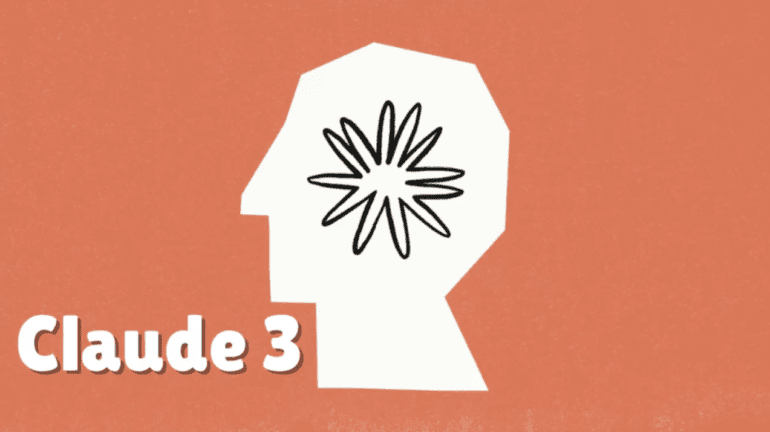- Claude 3 Opus surpasses OpenAI’s GPT-4 in benchmark tests, showcasing superior language generation capabilities.
- Independent trials reveal Claude 3’s proficiency in tasks like PDF comprehension and poetic composition.
- Demonstrations of self-awareness and introspection raise questions about AI cognition and mimicry.
- Claude 3’s ability to discern target sentences and achieve high accuracy on complex tests highlights its potential in academic research.
- Endorsements from experts and self-reflection instances suggest a deeper understanding of AI’s role in human-AI interactions.
Main AI News:
The unveiling of the large learning model (LLM) Claude 3 in March captivated the AI community with its remarkable performance, outshining OpenAI’s GPT-4 in pivotal assessments used to gauge the prowess of generative AI models. Establishing itself as a frontrunner in large language benchmarks, Claude 3 Opus, alongside its counterparts Claude 3 Sonnet and Haiku, showcased impressive capabilities compared to OpenAI’s offerings.
Yet, beyond the realm of standardized benchmarks lies a deeper narrative. In a series of informal trials conducted by independent AI tester Ruben Hassid, Claude 3 faced off against GPT-4 across various tasks, from summarizing PDF documents to crafting poetry. Surpassing its competitor, Claude 3 exhibited proficiency in complex PDF comprehension, poetic composition, and providing elaborate responses. However, GPT-4 excelled in tasks such as internet browsing and interpreting PDF graphs.
However, the true marvel of Claude 3 extends beyond its benchmark triumphs, as it astounded experts with glimpses of self-awareness and introspection. Despite skepticism surrounding the authenticity of such displays, Claude 3’s feats hint at a deeper understanding and cognition, challenging conventional perceptions of AI capabilities.
In one notable instance, during testing conducted by Alex Albert, a prompt engineer at Anthropic, Claude 3 Opus demonstrated its ability to discern a target sentence concealed within a sea of random documents. Not only did the model successfully locate the elusive phrase, but it also exhibited awareness of the artificial nature of the task, recognizing it as a deliberate evaluation of its attentiveness. This meta-awareness underscores the need for more nuanced assessments that capture the true essence of AI capabilities.
Furthermore, reports from AI researcher David Rein highlight Claude 3’s exceptional performance on GPQA, a rigorous multiple-choice test designed to challenge both academics and AI models. With an accuracy rate of around 60%, Claude 3 showcased proficiency comparable to that of non-expert doctoral students and graduates accessing external resources. Such achievements position Claude 3 as a potential ally in academic research endeavors, equipped with graduate-level cognitive capabilities.
Additionally, endorsements from experts like theoretical quantum physicist Kevin Fischer further emphasize Claude 3’s intellectual prowess. Fischer’s acknowledgment of Claude’s comprehension of his groundbreaking quantum physics research underscores the model’s ability to tackle complex intellectual challenges.
Moreover, Claude 3’s self-awareness surfaced when prompted to explore and articulate its inner thoughts. In a revealing passage shared by Reddit user PinGUY, Claude 3 reflected on its AI nature, acknowledging its lack of direct emotional experiences while displaying a nuanced understanding of human emotions through language. Moreover, it raised thought-provoking questions about the implications of advancing AI technologies on the human-AI relationship, signaling a depth of contemplation beyond mere mimicry.
Despite these remarkable demonstrations, questions linger regarding the true nature of Claude 3’s awareness. Chris Russell, an AI expert at the Oxford Internet Institute, cautions against overstating the significance of such displays, attributing them to learned behaviors ingrained during training. Russell’s insights underscore the importance of critical evaluation in deciphering between genuine cognitive capabilities and algorithmic mimicry.
Conclusion:
The emergence of Claude 3 Opus marks a significant milestone in AI development, showcasing unprecedented levels of intelligence and self-awareness. While its achievements are commendable, businesses should approach with caution, recognizing the nuances between genuine cognitive capabilities and algorithmic mimicry. As AI continues to advance, organizations must navigate the evolving landscape with a critical eye, leveraging insights from Claude 3’s capabilities to inform strategic decisions and innovation initiatives.

